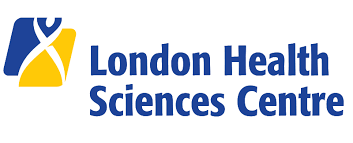New study shows how comprehensive sequencing and molecular tumour boards can help put precision oncology into practice

A recently published study by Network members in Toronto is shedding new light on the current landscape of precision oncology in Canada, outlining the opportunities and challenges that continue to surround the implementation of this promising framework for cancer care.
Published in January in the journal Current Oncology, the study examined the care trajectory of 55 patients with biliary tract cancers who received whole-genome and transcriptome sequencing (WGTS) on tumour and normal samples thanks to Network funding.
As outlined in the paper, this comprehensive sequencing data was analysed to identify genetic alterations in individual patients’ tumours that could potentially be targeted by specific treatments. These results were then discussed at a molecular tumour board made up of oncologists, pathologists, radiologists, surgeons, bioinformaticians, genome scientists, genetic counselors, pharmacists, study nurses and molecular biologists, who helped match a number of these patients to possible therapies.
The results were promising: the molecular tumour board recommended considering targeted therapy for 43 of these patients (78%) based on genetic alterations identified in their tumour. Importantly, this is substantially more than the 28 patients (51%) who were identified as having so-called ‘targetable’ alterations based on an automated analysis of the sequencing data, highlighting the value of holding molecular tumour board meetings rather than relying only on automated analyses.
“The data we present in this study demonstrates the important role WGTS testing and molecular tumour boards can play in advancing precision oncology by identifying targetable alterations in biliary tract cancers,” says Dr. Robert Grant, who co-leads with Dr. Gonzalo Sapisochin the Legresley Biliary Registry, a research program at Princess Margaret Cancer Centre and the Ontario Institute for Cancer Research.
Despite this promising data, Dr. Grant also stresses that the study shows that, in this rapidly changing area of precision cancer care, publicly funded access to targeted therapies is still a challenge, with many patients relying on compassionate access programs from pharmaceutical companies or private payment.
“While our work highlights the immense potential for targeted therapies in biliary tract cancers and in the fight against cancer more generally, it also demonstrates a need for new approaches so that all Canadians can access these treatments,” says Dr. Grant.
Accelerating precision oncology
Precision oncology is a personalized approach to cancer care that uses a patient’s unique genetic characteristics – along with those of their tumour – to inform treatment decisions. Although there’s promise that it can improve outcomes and quality of life for patients, this approach can also be complex, expensive and difficult to implement.
The Marathon of Hope Cancer Centres Network’s mission is to make precision oncology a reality for more cancer patients across Canada. This study provides a proof of principle and highlights the potential for comprehensive genomic sequencing and subsequent review by a molecular tumour board to identify potential targeted, personalized treatment options. It joins other Network-related projects such as the Personalized Oncogenomics (POG) project in British Columbia and the MOHCCN-Ontario (MOHCCN-O) study to demonstrate the feasibility of this approach in diverse contexts.
Precision approaches can be especially valuable for rare cancers such as biliary tract tumours, where fewer standard therapeutic options typically exist. For example, the study also found that some genes that are being investigated as therapeutic targets in other cancer types may also be common in biliary tract cancers, suggesting that further investigation in this context could be warranted.
“The continued support of the MOHCCN for teams studying rare cancers, such as the LeGresley Biliary Registry, profoundly shapes the treatment options available to patients with these kinds of cancers,” says lead author Dr. Felix Beaudry. “It also transforms the research landscape for cancers that are otherwise understudied and provides opportunities to translate this research into improvements in care.”
Study
Beaudry FEG, Li Z, Borgida A, Zorigtbaatar A, Wang X, Hildebrand M, Hamza O, Jang GH, Bucur R, Dodd A, Wilson J, Auer RC, Saibil S, Tsang ES, Vogel A, O’Kane GM, Gallinger S, Knox JJ, Notta F, Sapisochin G, Grant RC. Molecular Tumor Board-Guided Targeted Treatments for Biliary Tract Cancers in a Publicly Funded Healthcare System. Current Oncology. 2025; 32(2):80. https://doi.org/10.3390/curroncol32020080
Funding
Sequencing of patient samples for this study was partially funded by the Marathon of Hope Cancer Centres Network. These samples are now part of the MOHCCN Gold Cohort, which means that in the future, other researchers may use these data to further their precision medicine studies.
This study was also made possible by the LeGresley Family Foundation through the Princess Margaret Cancer Foundation, the LeGresley team at the Princess Margaret Cancer Centre, the Princess Margaret Cancer Biobank, the Ontario Institute for Cancer Research (PanCuRx Program) through funding provided by the Government of Ontario, patients, family members, caregivers and patient partners.
“While our work highlights the potential for targeted therapies in biliary tract cancers and in the fight against cancer more generally, it also demonstrates an urgent need to expand healthcare policies so that Canadians can access these treatments.”
Related Team Members
-
Jennifer
Project Leader
Knox -
Gonzalo
Project Leader
Sapisochin -
Steven
Project Leader
Gallinger -
Robert
Researcher
Grant -
Faiyaz
Researcher
Notta
Related Project
-
Regional Consortia
Ontario Cancer Consortium
- Ontario
The Ontario Cancer Consortium coalesces the expertise and efforts of clinicians, pathologists, software developers and data and translational scientists to help accelerate precision medicine for cance...Read more
Related News
-

Precision medicine should be first-line treatment for metastatic pancreatic cancer, study finds
A new clinical trial comparing the efficacy of two treatments commonly used on patients with metastatic pancreatic cancer has shed new light on the importance of using genomic sequencing to inform car... -

Atlantic Cancer Consortium leadership and members share updates with the Network
The presentation was part of MOHCCN Seminar Series, which features virtual talks from MOHCCN research partner investigators and trainees, providing a platform for MOHCCN members to share their ongoing... -

Prairie Cancer Consortium leadership and members share updates with the Network
The presentation was part of MOHCCN Seminar Series, which features virtual talks from MOHCCN research partner investigators and trainees, providing a platform for MOHCCN members to share their ongoing... -

Marathon of Hope – Québec consortium leadership and members share updates with the Network
The presentation was part of MOHCCN Seminar Series, which features virtual talks from MOHCCN research partner investigators and trainees, providing a platform for MOHCCN members to share their ongoing...














